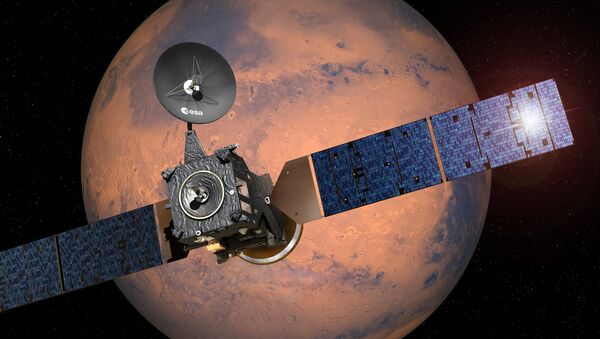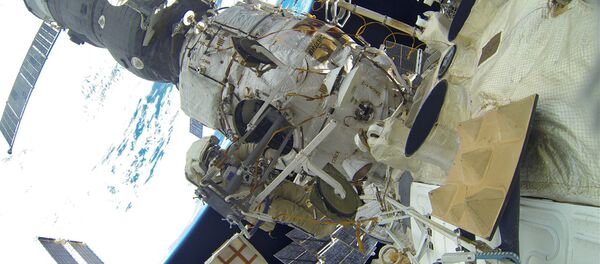The ESA is an intergovernmental organization dedicated to space exploration which is comprised of 22 member states in Europe, including 20 EU countries plus Norway and Switzerland.
"The good thing is that these [Russian Proton-M] rockets are extremely reliable, and we are always happy to work together with our Russian colleagues because we don't have such equipment in Europe," he said.
Touching on Mars-related research, Koschny said that scientists have already seen "a lot of evidence for even liquid water" on the Red Planet.
.@ESA_ExoMars after separation: solar arrays deployment & acquisition of signal sequence https://t.co/mHEKyxeSNl pic.twitter.com/HgPa8TC9Gp
— Domenico Calia (@CaliaDomenico) 14 марта 2016 г.
"Definitely, there is water on Mars, but the question is where is it and in what form is it," he pointed out.
The interview came after the ExoMars mission to search for the presence of life on Mars was launched from the Baikonur Cosmodrome in Kazakhstan on Monday.
The ExoMars spaceships — the orbital and the landing modules — will be put into orbit by Russia's Proton-M space rocket.
The European Space Agency and Roscosmos agreed to develop the ExoMars program in 2012 to investigate the atmosphere of Mars and explore possible traces of life on the Red Planet.
Monday's orbital probe launch is expected to be followed by a Mars rover probe in 2018.




